
One learns in school that each subject has its own vocabulary. In math, there is value, sum, denominator, and so on. In science, we learn of hypothesis, theory, density, and compound. In literature, terms, such as, metaphor, plot and theme, help us discuss a poem or story.
Theology, the study of the nature of God, also has a vocabulary: eternal, transcendent, omniscient, and sacred, yet these are terms that label and name things about God, and do not speak of the experience of God’s presence. As some theologians distinguish, we are meant to experience the “energies” of God that emanate from His grandeur, goodness and love. But man is not capable of knowing God’s essence – only God perfectly knows Himself. And before this abyss of His God-ness, we are speechless. And yet, we learn in the Gospel and the Church that we are to draw close to Him, that the Kingdom of God is within us, and that we are members of His Body. At first this seems to be a difficulty if not a contradiction.
 There is a broader definition of the word “theologian” from an older Christian tradition that includes anyone who seeks spiritual union with God. They are truly involved in seeking God but without the specialized and academic language of professional theologians. These are “the salt of the earth”, those spoken of in the Beatitudes, the simpler folks for whom it is enough to follow the yearning of their hearts to be closer to God by loving the Gospels and listening to the ancient teachings of the Church, the Early Fathers, that speaks as direct extensions of the Word. As the wise and saints declare, everyone is called to the contemplation of God, of the Lord. Everyone.
There is a broader definition of the word “theologian” from an older Christian tradition that includes anyone who seeks spiritual union with God. They are truly involved in seeking God but without the specialized and academic language of professional theologians. These are “the salt of the earth”, those spoken of in the Beatitudes, the simpler folks for whom it is enough to follow the yearning of their hearts to be closer to God by loving the Gospels and listening to the ancient teachings of the Church, the Early Fathers, that speaks as direct extensions of the Word. As the wise and saints declare, everyone is called to the contemplation of God, of the Lord. Everyone.
As we move in silence and simple contemplation nearer the experience of God’s real presence in the heart, and the wonder of the world, what vocabulary, what language are we to use to describe this divine knowledge? What do we say before the Crib and Child? The language of poetry, of paradox and mystery, come to mind such as we find in the words of Moses, King David, Isaiah, and most mystically in Solomon’s Song of Songs.
 This new way of thinking about union with God is puzzling to the logical and worldly-minded as it continues into the New Testament with well know phrases, “the first shall be last”, and events such as Jesus blessing Mary Magdalen the famous prostitute, loving and placing the good thief into Paradise, and as He announced His time on earth to be devoted to sinners, the “bad ones” among us, and not so much “the good ones” among the self-righteous cult of the Pharisees. At the same time, He leaves us with the positive assurance that reaches back to the memory of our first existence in Genesis, that, “the Kingdom of God is within you”. (Luke 17:21).
This new way of thinking about union with God is puzzling to the logical and worldly-minded as it continues into the New Testament with well know phrases, “the first shall be last”, and events such as Jesus blessing Mary Magdalen the famous prostitute, loving and placing the good thief into Paradise, and as He announced His time on earth to be devoted to sinners, the “bad ones” among us, and not so much “the good ones” among the self-righteous cult of the Pharisees. At the same time, He leaves us with the positive assurance that reaches back to the memory of our first existence in Genesis, that, “the Kingdom of God is within you”. (Luke 17:21).
 Concerning the Incarnation, also known as the Nativity or Christmas, what language can we use to describe the Creator of all things, One who has no beginning and no end, Who enters the Time and Space and World He created, as a new born human infant of a human mother, Mary, who gives birth without the aide of a human father, and Who as true human named Jesus (Savior) remains true God and member of the Holy Trinity? In Christian spirituality, you can see why silence is often the only response to things Divine, such as the reality of the Virgin birth of the Son of God.
Concerning the Incarnation, also known as the Nativity or Christmas, what language can we use to describe the Creator of all things, One who has no beginning and no end, Who enters the Time and Space and World He created, as a new born human infant of a human mother, Mary, who gives birth without the aide of a human father, and Who as true human named Jesus (Savior) remains true God and member of the Holy Trinity? In Christian spirituality, you can see why silence is often the only response to things Divine, such as the reality of the Virgin birth of the Son of God.
I experienced an artistic expression of the reaction of silence during my first visit to France. In the South, in one village, I purchased a set of les santons, that is, hand crafted clay figures painted and dressed as French villagers of the 18th and 19th centuries who form the village community who have come to adore the Christ Child. There craftsmen have given no regard for historical authenticity such as palm trees or desert sand, camels or ancient middle eastern dress. For older Christian nations, the Miracle of Bethlehem has entered all time by being above time where the eternal Spirit of God rules the universe.
The small quaint store sold figurines in the front, the workshop was in the back, and upstairs the man and wife had their bedroom and kitchen. In the 20th century, they still practiced their centuries old craft which was an inspiration in itself. Included in the creche set before me were the village visitors to Mary and Joseph and the Infant (occupying a miniature stable), the men and women peddlers, a vine dresser, a women carrying a bundle of sticks on her shoulders, a baker, and other representatives of the trades and crafts of village life before modernization.
My eye caught one male santon figure who carried nothing. He was dressed in the simple shirt, cap, vest and trousers of a peasant, probably a French farmer. His arms were up and bent at the elbows raised over his head with palms open to the sky. His head was tilted down toward the Crib. This, I learned was, “lou ravi”, the “ravished one” who stands in awe and wonder in amazement and silence before God made Man. The presence of “lou ravi” in the midst of the others figurines cast a hush in the little village drama. The longer I looked at him captured in his position of astonishment, the more I knew I would purchase the whole set just for his presence back home in Kansas.
It is because we are made by the Divine that we have the image and likeness of the Divine at the center of our being, in our hearts. All the ancients and early Christians knew the heart as the spiritual and intellectual center of the human person. Only at the beginning of the modern world does science begin to refer to the heart as a pump that describes in turn the circulatory system. Perhaps the Romantics of the 19th century tried to rescue this rather cold image of the heart as an organ by making it the center of the emotions particularly of love and melancholy; but the effect of this noble effort eventually left reason and will, as well as the emotions, as separate entities often isolated as hostile relatives of the soul.
 Still, the voices of the earlier traditions of Christianity are here: silence, they say, is the needful condition of our otherwise overwhelmed and busy minds, it is silence that is the proper state of man to receive the Holy Spirit, God. Silence is the beginning of redemption because it is only under the quiet conditions we can hear God in our hearts. Our days are the days when it is more frequently asked: Where is He? Why doesn’t God hear my prayers and answer? The wise Fathers of the Church would likely answer: He does hear our prayers and He does give us good counsel in return, but our world is too noisy and our minds are too busy, to hear Him.
Still, the voices of the earlier traditions of Christianity are here: silence, they say, is the needful condition of our otherwise overwhelmed and busy minds, it is silence that is the proper state of man to receive the Holy Spirit, God. Silence is the beginning of redemption because it is only under the quiet conditions we can hear God in our hearts. Our days are the days when it is more frequently asked: Where is He? Why doesn’t God hear my prayers and answer? The wise Fathers of the Church would likely answer: He does hear our prayers and He does give us good counsel in return, but our world is too noisy and our minds are too busy, to hear Him.
Before the Gospels, before the Christian Church and Fathers of the Church, the Psalms gave poetic instruction how we should find God within: “For God alone my soul waits in silence; from him comes my salvation.” (Psalm 61)
It is “lou ravi” that stands still in time though if he would speak he might recall the words of the ancient hymn:
“Let all mortal flesh keep silence, and with fear and trembling stand;
Ponder nothing earthly-minded, for with blessing in His hand,
Christ our God to earth descendeth, our full homage to demand.”
Or we can recall from our tradition the song:
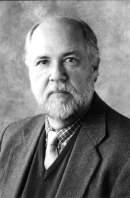
Dr. James S. Taylor
“Silent night, holy night…” as we gaze with the eyes of our heart upon not just the presence of the Incarnate God in our world, but the Lord Jesus “so tender and mild”, who “sleeps in heavenly peace” before us and within us, as we learn to know from His birth, the “Son of God, love’s pure light.”
Merry Christmas
 Today is the vigil of the Nativity of the True Messiah. This astonishing, unprecedented event, alas, has nothing to do with Christmas today. Christmas as understood by anyone several hundred years ago is far removed from the crowded and frenzied stores along Wanamaker Road in Topeka (where I live). Compared to the cold and clear and starry night that enveloped a Bethlehem cave, now about six miles south and west from the center of Jerusalem, well, there is no comparison in contemporary culture.
Today is the vigil of the Nativity of the True Messiah. This astonishing, unprecedented event, alas, has nothing to do with Christmas today. Christmas as understood by anyone several hundred years ago is far removed from the crowded and frenzied stores along Wanamaker Road in Topeka (where I live). Compared to the cold and clear and starry night that enveloped a Bethlehem cave, now about six miles south and west from the center of Jerusalem, well, there is no comparison in contemporary culture.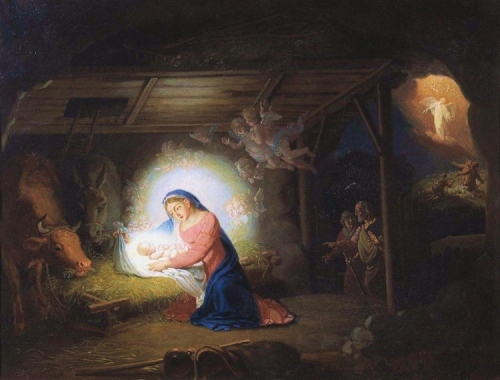

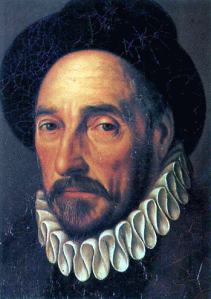 Michel de Montaigne was born on February 28, 1533, into a time when a good education was a luxury known only to the wealthy. School was primarily for boys, and in his essay Of the Education of Children, Montaigne does not mention the education of girls. However, Montaigne’s advice for educating boys can be applied just as well to the education of girls. His idea of a good well-rounded education was very similar to the education that he actually received. Montaigne’s father was a wealthy merchant, and so Montaigne was given a good classical education. Montaigne was taught mainly by tutors. He did attend the College of Guienne, but his tutor was with him and guiding him through the whole experience. Montaigne spoke well of his tutors and of their education techniques, but he criticized the harsh discipline of most of the schools in his day calling them, “jails of captive youth”. In his essay Of the Education of Children, Montaigne stresses some rather controversial subjects such as the essential need to teach children without anger or force, the advantages of letting children taste what appeals to them, the benefits of traveling and studying other cultures, and above all the importance of educating a child’s character. Most of Montaigne’s theories on education remain controversial even in most of the modern world; but because he understood the process of learning so well, his ideas remain important and applicable to this day.
Michel de Montaigne was born on February 28, 1533, into a time when a good education was a luxury known only to the wealthy. School was primarily for boys, and in his essay Of the Education of Children, Montaigne does not mention the education of girls. However, Montaigne’s advice for educating boys can be applied just as well to the education of girls. His idea of a good well-rounded education was very similar to the education that he actually received. Montaigne’s father was a wealthy merchant, and so Montaigne was given a good classical education. Montaigne was taught mainly by tutors. He did attend the College of Guienne, but his tutor was with him and guiding him through the whole experience. Montaigne spoke well of his tutors and of their education techniques, but he criticized the harsh discipline of most of the schools in his day calling them, “jails of captive youth”. In his essay Of the Education of Children, Montaigne stresses some rather controversial subjects such as the essential need to teach children without anger or force, the advantages of letting children taste what appeals to them, the benefits of traveling and studying other cultures, and above all the importance of educating a child’s character. Most of Montaigne’s theories on education remain controversial even in most of the modern world; but because he understood the process of learning so well, his ideas remain important and applicable to this day.  One of the first things that Montaigne emphasizes is kindness and gentleness towards the student. Montaigne sympathized with children who have had one of the greatest pleasures of life – learning – embittered and frustrated by the harshness of their teachers. To teach is the goal of educators, but they abandon that goal when they use the fear of punishment to incite students to study harder. Fear has an almost paralyzing effect on the mind. An atmosphere of fear is a very difficult one in which to study because learning involves receptiveness and openness. Fear closes people up. Hard work should be rewarded. Students who do not seem to grasp their subjects should not be punished because of the faultiness of the teacher, whose job it is to adapt each child to the pursuit of knowledge in a way that neither overwhelms nor bores them. Montaigne encourages teachers to present their subjects with enthusiasm and zeal. Seeing their teachers so passionate about their subjects will inspire children to study more fervently and with greater interest. Education should be taught by alluring the appetite and the affections, not by a sharp tongue and the lash.
One of the first things that Montaigne emphasizes is kindness and gentleness towards the student. Montaigne sympathized with children who have had one of the greatest pleasures of life – learning – embittered and frustrated by the harshness of their teachers. To teach is the goal of educators, but they abandon that goal when they use the fear of punishment to incite students to study harder. Fear has an almost paralyzing effect on the mind. An atmosphere of fear is a very difficult one in which to study because learning involves receptiveness and openness. Fear closes people up. Hard work should be rewarded. Students who do not seem to grasp their subjects should not be punished because of the faultiness of the teacher, whose job it is to adapt each child to the pursuit of knowledge in a way that neither overwhelms nor bores them. Montaigne encourages teachers to present their subjects with enthusiasm and zeal. Seeing their teachers so passionate about their subjects will inspire children to study more fervently and with greater interest. Education should be taught by alluring the appetite and the affections, not by a sharp tongue and the lash. Learning is supposed to be an enjoyable experience. Men and women naturally desire to know and to discover. We want to learn all the answers to the “how’s” and “whys” of the world. Our intellects find pleasure in school well taught. The goal of teaching should be to make the process of learning enlightening, fulfilling, and enjoyable. The job of an educator is to make sure that children understand what is being handed down to them. Montaigne suggested that teachers question children about their studies to make sure that they have really considered and understood their lessons. Teachers should not talk unceasingly into our ears as if, “they were pouring water into a funnel.” It is not enough, as Montaigne holds, to be able to hide behind an armor of other people’s thoughts and ideas without making them our own. Some student will inevitably be slower to grasp new ideas than others, and some will catch on immediately. A good teacher knows how to instruct each pupil in the style that best suits their abilities. Montaigne also understood that children cannot be molded to fit a certain trade that does not suit them, just as children cannot be made to learn the same way. He appreciated the fact that children are individuals from birth. He held that children should be allowed to taste what appeals to them and should not be forced into a trade or career in which they have no talent or interest. Thus, Montaigne highlights the importance of understanding that children are individuals and that they should be treated as such.
Learning is supposed to be an enjoyable experience. Men and women naturally desire to know and to discover. We want to learn all the answers to the “how’s” and “whys” of the world. Our intellects find pleasure in school well taught. The goal of teaching should be to make the process of learning enlightening, fulfilling, and enjoyable. The job of an educator is to make sure that children understand what is being handed down to them. Montaigne suggested that teachers question children about their studies to make sure that they have really considered and understood their lessons. Teachers should not talk unceasingly into our ears as if, “they were pouring water into a funnel.” It is not enough, as Montaigne holds, to be able to hide behind an armor of other people’s thoughts and ideas without making them our own. Some student will inevitably be slower to grasp new ideas than others, and some will catch on immediately. A good teacher knows how to instruct each pupil in the style that best suits their abilities. Montaigne also understood that children cannot be molded to fit a certain trade that does not suit them, just as children cannot be made to learn the same way. He appreciated the fact that children are individuals from birth. He held that children should be allowed to taste what appeals to them and should not be forced into a trade or career in which they have no talent or interest. Thus, Montaigne highlights the importance of understanding that children are individuals and that they should be treated as such. Besides discussing how children should be taught, Montaigne always discusses what children should be taught. Since the object of education is to produce virtuous men and women, educators should always keep this priority in mind. Montaigne says that virtue is the ability to live well and die well. It is as simple as that to him. Montaigne asserts that it is wise to familiarize children with all parts of world, so that they may be able to properly judge themselves from the right angle, and not become narrow-minded. Montaigne also saw history as a very important subject because through history children are able to associate with the souls of great men of the past, such as Plato, Aristotle, and Lycurgus. Montaigne advises teachers not to place too much importance on dates and names and event. These facts will not make children better people. What will improve children is learning how to judge history. History is the skeleton of philosophy, and Montaigne holds philosophy in the highest regard. He says that temperance is philosophy’s proper office, meaning that philosophy teaches us temperance in all things. According to Montaigne, philosophy is not a dull worthless study, and it is wrong to present philosophy in such a light to students. Philosophy is lively, spirited, and playful. “The surest sign of wisdom is constant cheerfulness,” Montaigne says in his essay. Philosophy helps us to live well and die well. Philosophy does not restrict our enjoyment of good things, rather it lets us live to the fullest without harmful consequences. For example, eating too much makes us sick even though eating and food are goods. The temperance that we acquire as a result of philosophy protects us from having too much of a good thing. Some of the most profitable lessons of philosophy include discovering what there is to know and not to know, what is the aim of study, what are valor temperance, and justice, what is the difference between ambition and avarice, etc. Students should learn not only the answers to these questions, but also how to judge them for themselves. After students have learned the art of living well, then teachers should explain the meaning of logic, physics, geometry, rhetoric, and whatever other sciences interest them. Teacher should always remember, though, that these come secondary to philosophy. It is a waste of effort to load a student with a bunch of facts and books without first teaching him the art of living well. Geometry, for example, is not a necessity when it comes to living well. However, having an understanding of the nature of man is a necessity. Lastly, man is composed of soul and body, and Montaigne makes it a point not to neglect the body in a discussion on education. He pushes the significance of toughening one’s body and keeping active and lean. It is important to “educate” the body as well as the intellect.
Besides discussing how children should be taught, Montaigne always discusses what children should be taught. Since the object of education is to produce virtuous men and women, educators should always keep this priority in mind. Montaigne says that virtue is the ability to live well and die well. It is as simple as that to him. Montaigne asserts that it is wise to familiarize children with all parts of world, so that they may be able to properly judge themselves from the right angle, and not become narrow-minded. Montaigne also saw history as a very important subject because through history children are able to associate with the souls of great men of the past, such as Plato, Aristotle, and Lycurgus. Montaigne advises teachers not to place too much importance on dates and names and event. These facts will not make children better people. What will improve children is learning how to judge history. History is the skeleton of philosophy, and Montaigne holds philosophy in the highest regard. He says that temperance is philosophy’s proper office, meaning that philosophy teaches us temperance in all things. According to Montaigne, philosophy is not a dull worthless study, and it is wrong to present philosophy in such a light to students. Philosophy is lively, spirited, and playful. “The surest sign of wisdom is constant cheerfulness,” Montaigne says in his essay. Philosophy helps us to live well and die well. Philosophy does not restrict our enjoyment of good things, rather it lets us live to the fullest without harmful consequences. For example, eating too much makes us sick even though eating and food are goods. The temperance that we acquire as a result of philosophy protects us from having too much of a good thing. Some of the most profitable lessons of philosophy include discovering what there is to know and not to know, what is the aim of study, what are valor temperance, and justice, what is the difference between ambition and avarice, etc. Students should learn not only the answers to these questions, but also how to judge them for themselves. After students have learned the art of living well, then teachers should explain the meaning of logic, physics, geometry, rhetoric, and whatever other sciences interest them. Teacher should always remember, though, that these come secondary to philosophy. It is a waste of effort to load a student with a bunch of facts and books without first teaching him the art of living well. Geometry, for example, is not a necessity when it comes to living well. However, having an understanding of the nature of man is a necessity. Lastly, man is composed of soul and body, and Montaigne makes it a point not to neglect the body in a discussion on education. He pushes the significance of toughening one’s body and keeping active and lean. It is important to “educate” the body as well as the intellect. Education’s purpose is to produce young men and women whose virtue and conscience shine through their speech and actions. Montaigne gives us an idea how to recognize a well-educated young person. Well-rounded young men and women have an honest curiosity about everything, they are guided by their reason, they understand and confess their flaws when they see them, they are not obstinate or contentious, they do not try to argue with fools or those beneath him, they shun domineering airs and condescension, they are loyal and affectionate, and they possess a good understanding about themselves, among other things that have already been mentioned. So much depends upon having a good education. An education that allows one to discover what it is that interests one as a career or as a study is invaluable. Understanding the purpose of life is also essential to a good life. Without philosophy to give us the three proofs of God’s existence, we would be vulnerable to the attacks of Atheists. Without philosophy to teach us temperance, we would never learn how to live well. Without knowledge of our history, mankind would fall back into the same traps again and again. Without geometry, we would never have been able to build the pyramids or skyscrapers. Without rhetoric, many brilliant ideas would never have been accepted. Without education, we would lose one of the most pleasurable and profitable parts of life. Our world would be completely different without these essential subjects. It is of vital importance that we know how to teach and what to teach to the children of each generation. Montaigne’s essay Of the Education of Children is very helpful in understanding just how to accomplish the indispensable task of educating the young. Education is so crucial because it guarantees that we will never lose the knowledge that humanity has stored up over so many centuries.
Education’s purpose is to produce young men and women whose virtue and conscience shine through their speech and actions. Montaigne gives us an idea how to recognize a well-educated young person. Well-rounded young men and women have an honest curiosity about everything, they are guided by their reason, they understand and confess their flaws when they see them, they are not obstinate or contentious, they do not try to argue with fools or those beneath him, they shun domineering airs and condescension, they are loyal and affectionate, and they possess a good understanding about themselves, among other things that have already been mentioned. So much depends upon having a good education. An education that allows one to discover what it is that interests one as a career or as a study is invaluable. Understanding the purpose of life is also essential to a good life. Without philosophy to give us the three proofs of God’s existence, we would be vulnerable to the attacks of Atheists. Without philosophy to teach us temperance, we would never learn how to live well. Without knowledge of our history, mankind would fall back into the same traps again and again. Without geometry, we would never have been able to build the pyramids or skyscrapers. Without rhetoric, many brilliant ideas would never have been accepted. Without education, we would lose one of the most pleasurable and profitable parts of life. Our world would be completely different without these essential subjects. It is of vital importance that we know how to teach and what to teach to the children of each generation. Montaigne’s essay Of the Education of Children is very helpful in understanding just how to accomplish the indispensable task of educating the young. Education is so crucial because it guarantees that we will never lose the knowledge that humanity has stored up over so many centuries.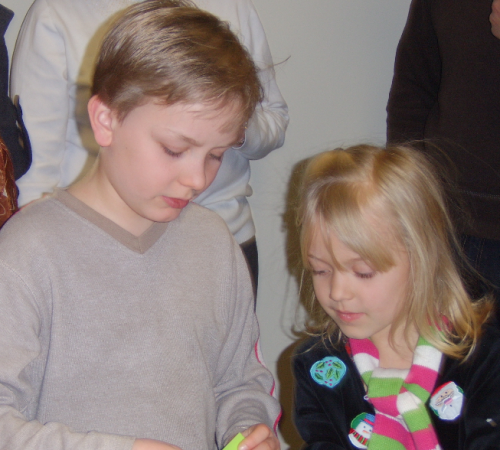

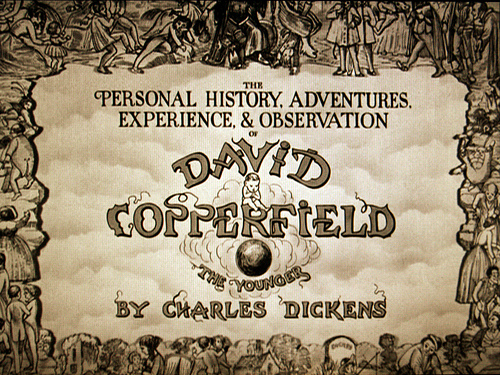
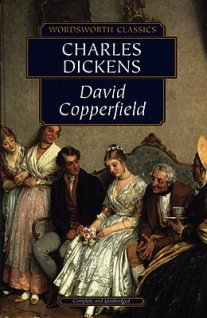 Throughout the novel Dickens critiques the society at the time. Dickens criticizes his society’s view of wealth and class as measures of a person’s value. It was a popular belief among the upper and middle classes in Dickens’s time that poverty was a symptom of moral degeneracy and that those who were poor deserved their state due to their inherent deficiencies. Dickens shows the injustice of this belief and sympathizes with the poor throughout the story and eventually, though there are many ups and downs in the novel, all the characters get what they deserve and the story ends on a happy note.
Throughout the novel Dickens critiques the society at the time. Dickens criticizes his society’s view of wealth and class as measures of a person’s value. It was a popular belief among the upper and middle classes in Dickens’s time that poverty was a symptom of moral degeneracy and that those who were poor deserved their state due to their inherent deficiencies. Dickens shows the injustice of this belief and sympathizes with the poor throughout the story and eventually, though there are many ups and downs in the novel, all the characters get what they deserve and the story ends on a happy note.  “Out of the darkness of my life, so much frustrated, I put before you the one great thing to love on earth: the Blessed Sacrament….There you will find romance, glory, honor, fidelity, and the true way of all your loves upon earth, and more than that: death: by the divine paradox, that which ends life, and demands the surrender of all, and yet by the taste (or foretaste) of which alone can what you seek in your earthly relationships (love, faithfulness, joy) be maintained, or take on that complexion of reality, of eternal endurance, that every man’s heart desires,” – J.R.R. Tolkien
“Out of the darkness of my life, so much frustrated, I put before you the one great thing to love on earth: the Blessed Sacrament….There you will find romance, glory, honor, fidelity, and the true way of all your loves upon earth, and more than that: death: by the divine paradox, that which ends life, and demands the surrender of all, and yet by the taste (or foretaste) of which alone can what you seek in your earthly relationships (love, faithfulness, joy) be maintained, or take on that complexion of reality, of eternal endurance, that every man’s heart desires,” – J.R.R. Tolkien




